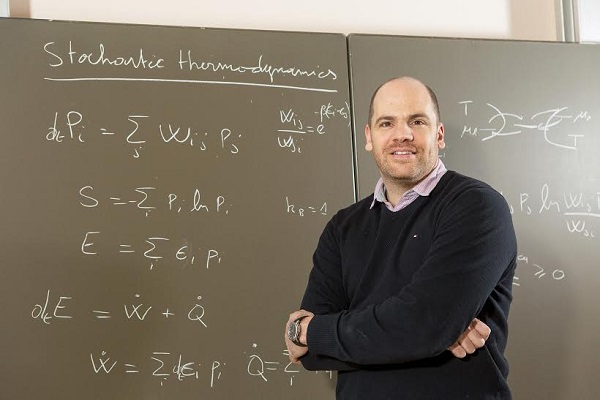
A physicist at the University of Luxembourg has been awarded a 'Consolidator Grant' by the European Research Council (ERC) for a project aimed at 'Energy Conversion and Information Processing at Small Scales'.
Dr. Massimiliano Esposito, an expert in nanosystems thermodynamics with the university, will be receiving a total sum of €1.7 million in funding over a five-year period to support him in carrying out his research.
The ERC Consolidator Grant is highly sought-after in Europe as a grant offering financial support to young researchers when they are embarking on their own independent research team or programme, and establish a platform for the next generation of innovators. The grant is competitive and awarded to top researchers who have gained 7 to 12 years of experience following their PhD.
Dr. Massimiliano Esposito, who obtained his PhD from the Université Libre de Bruxelles, currently heads a research team in the Physics and Materials Science Research Unit at the Faculty of Science, Technology and Communication of the University of Luxembourg. The group is focused on the study of complex systems and statistical physics, and represents Dr. Esposito's fourth university project following postdoctoral positions at the University of California in Irvine and San Diego and a contract researcher role at the University of Brussels.
"The fundamental discoveries that we made in the last four years on the performance of small energy converters as well as on the energetics of chemical networks served as the basis to formulate my ERC research proposal," remarked the 38-year-old scientist. "Since the main selection criteria for ERC grants is scientific excellence, this award also indirectly indicates that the University of Luxembourg and the FNR are supporting excellent basic science."
Massimiliano Esposito further explained that he wishes to use the grant money to enhance development of the theory of stochastic thermodynamics describing energy and information transfers in nanosystems.
"Small systems are continuously wiggling due to thermal energy fluctuations," he continued. "In order to control them and make them do things that are useful to us, we need to come up with good strategies. Biological systems, through evolution, found ways to operate efficiently at the molecular scale. I want to use stochastic thermodynamics to understand how they do that, but also to design performant synthetic nanosystems useful for instance for energy-efficient and fast information technologies."
As the third scientist from the University of Luxembourg to be awarded an ERC grant, Dr. Esposito expressed his belief that the new theory could be a significant new approach to nanotechnologies and molecular biology.
Photo by University of Luxembourg (Dr. Massimiliano Esposito)








